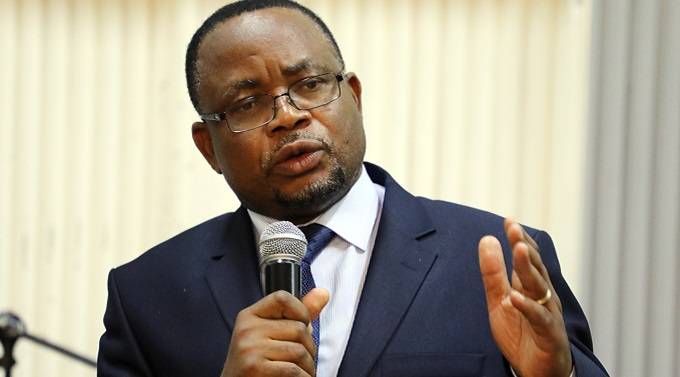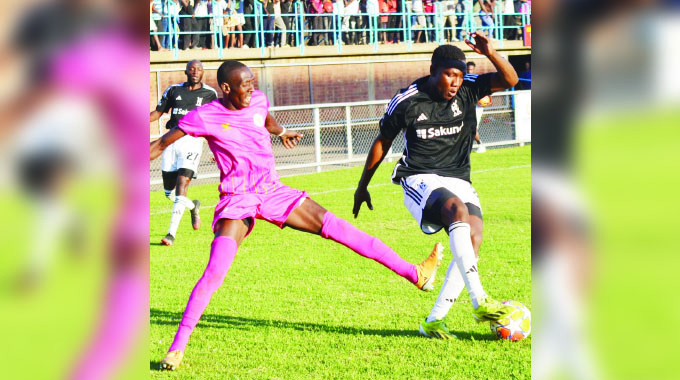A revisit to April 18, 1980

Ricky Zililo, Senior Sports Reporter
THE attainment of Zimbabwe’s independence in 1980 brought about social, political and economic liberation, and also opened avenues for talented athletes to make a living through sport.
Before independence, the international community hit the country with sanctions, thereby freezing out the majority blacks from competing in global events.
The sports available to most blacks were athletics, football and boxing, while disciplines like rugby, cricket, swimming, golf, hockey and other minority sports were a preserve of the minority whites.
However, independence brought about gradual change, with blacks starting to participate in sports that were previously a preserve for whites and international sports federations allowed Zimbabwe to compete on the international stage.
Tomorrow, Zimbabwe celebrates its 41st Independence anniversary and the country’s popular sport, football has been handed the privilege to entertain the nation amidst the global Covid-19 pandemic.
The country’s two traditional giants, Highlanders, formed in 1926, and Dynamos, who were established in 1963, square off at the National Sports Stadium.
Unlike in 1980 when the independence celebrations saw multitudes thronging the ceremonial homes of football, Barbourfields Stadium in Bulawayo and Harare’s Rufaro Stadium for the four-nation Uhuru Cup, this time around Bosso and DeMbare will play in an empty stadium, with Zimbabweans following proceedings on television and radio due to the Covid-19 lockdown.
In 1980, Zambia, Tanzania, Mozambique and Zimbabwe participated in the April independence football festivities.
Of significant to note is that Zambia, Tanzania and Mozambique played an important role in helping Zimbabwe attain independence by housing ZPRA and ZANLA liberation forces.
In the build-up to the final, Zimbabwe clobbered Mozambique 6-0 at Rufaro to set a date with Zambia, who had beaten Tanzania 2-0 at Barbourfields.
Captained by Sunday Marimo, now known as Sunday Chidzambwa, Zimbabwe came from a goal down to beat Zambia 2-1 in the Independence Cup final, courtesy of goals by legends David Mandigora and Shacky Tauro, now late.
The latter’s last minute goal was heavily contested by the Zambians, who felt Tauro was offside when he headed in the late Oliver Kateya’s cross.
For Chidzambwa, that “sweet independence victory” is still engraved in his heart and what makes it even more special for the celebrated Zimbabwean football legend was the honour to lead the national team to its first independent Zimbabwe trophy.
“Up to today, I still cherish with great pride to be the first national team captain in independent Zimbabwe and also going on to win the four-nation Independence Trophy,” said Chidzambwa.
“At that time, we had very talented players like Shacky Tauro, Madinda Ndlovu, Joseph Zulu, Marx Tshuma and Ephert Lungu, among others, meaning it wasn’t easy to make it for the national team. With so much talent, it wasn’t a fluke that we beat favourites Zambia,” he added.
Chidzambwa recalled that the stadium atmosphere for the Mozambique and Zambia game as “electric”, with the venue “packed to the rafters”.
The celebrated legend went on to write another piece of history when he became the first local coach to lead a Zimbabwean club, Dynamos, to the Caf Champions League final in 1998.
Zimbabwe’s independence definitely opened opportunities for the entire sports industry.
“Independence brought joy and relief to the sports sector as we began to play against other independent African nations. Before 1980, we were only playing against South Africa. When we played Mozambique and Zambia at independence, that gave us a glimpse of what to expect when we ventured into Africa. We won that game against Zambia because we took our chances as it was a tightly contested game.
“Because of our country’s independence, we went on to face continental giants like Cameroon, Egypt, Nigeria and others, which was a good experience for our game as we learnt a lot. One thing we realised was that as Zimbabwe we were very honest and too straight forward for African football, if you know what I mean. In one of the Caf-sanctioned matches against Zambia in Lusaka, we were baptised to African football as we witnessed some terrible officiating. Shacky (Tauro) beat their last man inside the box and as he was going for the kill he was hacked down, but the referee waved play-on.
“I was marking Alex Chola when a long clearance from the Zambian side was made, and I was the first to turn and go for the ball. Chola then pulled my hand in clear view of the referee and went on to score. We lost 2-1 and when I asked the Egyptian referee on the day, I remember him saying; ‘me see nothing’ and that was it. We were robbed in daylight and it took long for us to understand the dirty tricks of African football,” Chidzambwa said.
He also revealed that he spent two years of his early childhood in Bulawayo, doing Standard 5 and 6 at Mafakela Primary School in Luveve before returning to Harare in 1967.
At the grassroots, he played as a striker and converted to a defender while doing his secondary school at Highfield Community.
“I didn’t want to play in secondary, so I chose to be a defender in protest as I thought I’d only kick the ball away and rest. However, fate had it and I continued and developed into a good defender,” he said.
In secondary school, he played alongside his brother Misheck, Kateya, Shadreck Kateya (brother to Oliver), who he described as a “very good midfielder”, as well as Simon Mudzudzu.
On him almost leading Dynamos to lifting the Caf Champions League, Chidzambwa said: “We took long to learn the African football paths and it took us 18 years to reach a major final. It’s unfortunate by that time (1998), most of our good players had left the country. We had lost Vitalis Takawira, Kaitano Tembo and Tauya Murewa, among others. Had any of the big three, Highlanders, Dynamos or Caps United managed to keep their talent, ngabe sakuwina kudala okuyiCaf Champions League.”
Chidzambwa, who assisted Reinnhard Fabisch during the Dream Team era, went on to become the first Warriors’ coach to lead Zimbabwe to the Afcon finals.
Zimbabwe will be heading for a fifth Afcon finals, after making their maiden appearance in Tunisia in 2004.
In the four times that Zimbabwe have been to Afcon, Chidzambwa was in charge twice (2004 and 2019), with Charles Mhlauri (2006) and Kalisto Pasuwa in charge in 2017.
Zdravko Logarusic has secured the 2021 Afcon ticket and becomes the first foreign coach to achieve that feat with the Warriors.
“Now we are accustomed to playing against the best because we’re matching them. These qualifications are because of independence we have because our top players are signed by foreign teams to develop in Europe or other competitive leagues. During our playing days we played locally, got to work then training and back to work, but now these boys can only concentrate on football, which is now a profession.
“I’ll be happy to see Zimbabwe lifting the Afcon trophy and even qualify for the World Cup. I think with the group we have now it’s easier to qualify for the 2022 World Cup if we play our cards right,” said Chidzambwa.
The veteran coach, who has taken a break from coaching, is worth celebrating at independence, as he has groomed a number of coaches that have gone on to do well such as Callisto Pasuwa, Tembo, Elvis ‘Chuchu’ Chiweshe, Moses Chunga, Mandigora and Tonderai Ndiraya. — @ZililoR












Comments